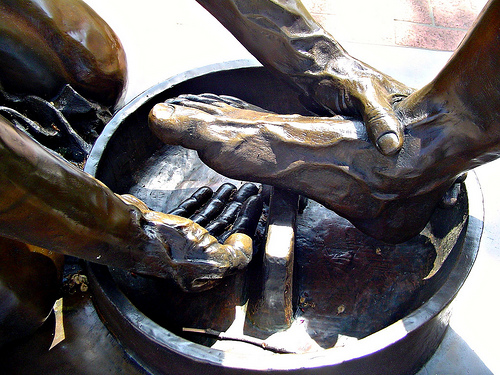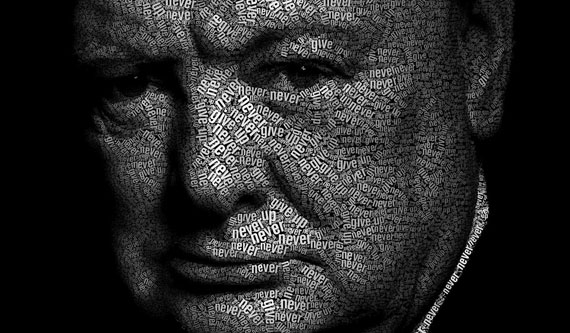Thomas Jefferson once asked:
“Can the liberties of a nation be thought secure when we have removed their only firm basis, a conviction in the minds of the people that these liberties are of the gift of God? That they are not to be violated but with his wrath?”
In the 18th Century, on both sides of the Atlantic, there would likely have been a consensus that the answer was self-evident – civic responsibility was but the outworking of a higher responsibility to God.
Not so today. In a largely secularized West, while we value our democratic heritage which balances the role and responsibilities of politicians and citizens, many fail to appreciate these values are rooted in eternal truths and immutable laws.
Unless there are moral absolutes by which we judge society, society becomes absolute.
Every person is created equal in the image of God and therefore worthy or dignity and respect. The Christian scriptures insist we have clear responsibilities to both God and the state.
This was taught by Jesus: ‘Give … to Caesar what is Caesar’s and to God what is God’s.’ (Matthew 22:21). The religious leaders of his day had tried to expose Jesus as either a collaborator with, or rebel against, the hated Roman Empire. Jesus insisted he was neither.
Our responsibility is to obey God for those who rule do so only under His authority.
We must first, obey our political leaders as God’s servants. Second pray for our leaders that God will give them wisdom and selfless impartiality in their role. Third, hold them accountable when they depart from their divinely appointed role.
The Christian scriptures teach: “Let everyone be subject to the governing authorities” (Romans 13:1a). The state’s authority is derived from God. So whether we enjoy good or bad government, the state is a divine institution with God’s authority.
But this also means we can say to rulers what Jesus said to Pilate at his trial, ‘You would have no power [authority] over me if it were not given to you from above.’ (John 19:11).
This is because the role of government is to commend those who do right and punish those who do wrong. (Romans 13:3). This means we should submit up to the point where obedience to the state would result in participation in evil, or disobedience to God. If the State ever commands what God forbids, or forbids what God commands, then our moral duty is to resist the government.
We must disobey the State in order to obey God. In this way we can contribute, with our lives if necessary, to the return of good government and secure a better future for our children than the one we inherited.
In the early Church, the Apostles were forbidden by the Jewish authorities to speak in the name of Jesus. They replied, “We must obey God rather than human beings.” (Acts 5:29).
This is the Christian justification for civil disobedience. Whenever human laws contradict God’s law, civil disobedience becomes a sacred, religious duty.
There are notable examples in British history of those who opposed slavery, who campaigned for trade union rights, who lobbied for an end to the use of child labour, and called for the emancipation of women. But this civil disobedience must be peaceful and non-violent.
Martin Luther King once said, “Nonviolence is a powerful and just weapon. It is a weapon unique in history, which cuts without wounding. It is a sword that heals.”
So, while we are to submit to the state’s God-given authority, we must remain opposed to both tyranny and anarchy. Our responsibility as citizens, whether here or in Bahrain, is to cooperate with, but hold governments accountable to fulfill their God-appointed role. That will lead not only to better government but also a more peaceful and stable society.
That is why I support the pro-democracy movement in Bahrain. The arc of history bends toward justice. May God give the people of Bahrain, justice, liberty and security before we meet to celebrate the 3rd anniversary of Bahrain’s Pearl Revolution.
Presentation delivered at the conference organized by the Bahrain Pro-Democracy Group ‘Understanding the Roots and Prospects of Bahrain’s Revolution’ held at King’s College, London, 6th February 2013.
A few photos of the early part of the event can be seen here
See also:
Press TV UK seminar sheds light on Bahrain’s revolution
Bahrain Freedom Movement
Frontline Club Bahrain Revolution 2nd Anniversary
 John Chapters 13-17 are known as the Upper Room Discourse. What is surprising is that in the first twelve chapters of John’s Gospel, Agape, God’s love is mentioned 8x. But in chapters 13-17, it is mentioned 31x. I want us to see the connection between love and service.
John Chapters 13-17 are known as the Upper Room Discourse. What is surprising is that in the first twelve chapters of John’s Gospel, Agape, God’s love is mentioned 8x. But in chapters 13-17, it is mentioned 31x. I want us to see the connection between love and service.


 Introduction:
Introduction: Ten questions to get you started this morning
Ten questions to get you started this morning


